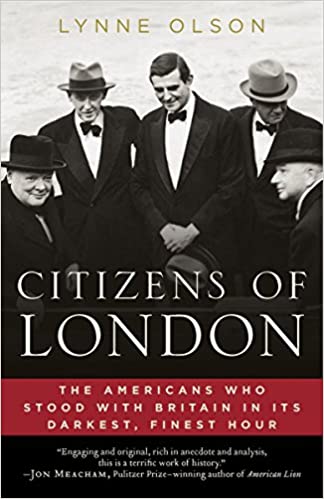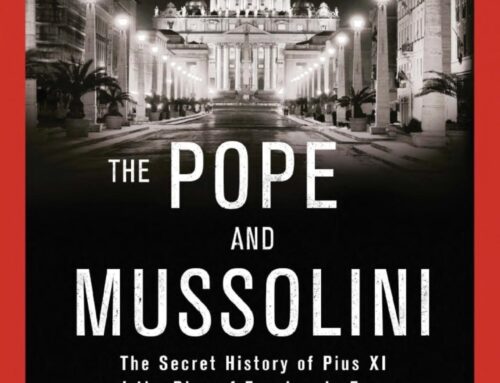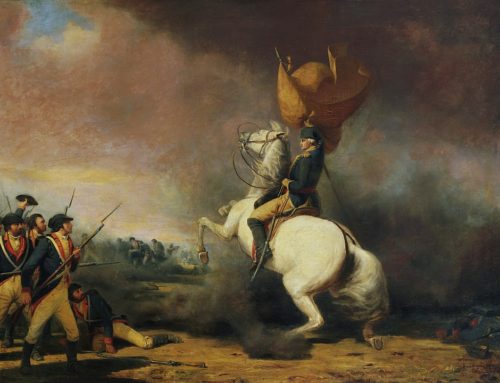Citizens of London: The Americans Who Stood with Britain in its Darkest, Finest Hour
By Lynne Olsen
As he spoke in his last interview Eric Sevareid fought to keep his voice steady. At the end he gave up, and his voice choked with emotion: “Someone wrote the other day, ‘When this is all over, in years to come, men will speak of this war and say, ‘I was a soldier,’ ‘I was a sailor,’ or ‘I was a pilot.’ Others will say with equal pride, ‘I was a citizen of London.”
Eric Sevareid was one of the Murrow Boys. Sevareid, William Shirer were part of the CBS newscast that brought World War II home to the American public. They were strong supporters of Churchill even when the American Ambassador Joseph Kennedy was an arch appeaser and hated Churchill.
Lynne Olson, author of the highly acclaimed Troublesome Young Men, focused on Britain in World War II, this time from an American perspective. Citizens of London is the engrossing behind-the-scenes story of how the United States and Britain forged their crucial wartime alliance, as seen from the viewpoint of three key American players in London. Drawing from a wide variety of primary sources, Olson depicted the personal journeys of these men, who, determined to save Britain from Hitler, helped convince a cautious Franklin Roosevelt and reluctant American public to back the British at a critical time.
In May 1940, Britain’s policy of appeasing Adolf Hitler had failed, and the old appeasers were out of power. Winston Churchill had taken over as prime minister, and Britain was at war with Nazi Germany. U.S. President Franklin D. Roosevelt was aiding the British, but faced a U.S. Congress skeptical of actually going to war. As London endured devastating German bombing raids, some Americans were there, assuring the British of support and agitating for American entry into the war.
Three Americans stood by Britain. They disagreed with former Ambassador Joseph Kennedy’s analysis who thought Britain was finished. Winant, Harriman and Murrow all advocated for America to enter the war. Winant and Harriman, the diplomatic pair, told Roosevelt that England had to be saved. CBS reporter Edward R. Murrow told Americans what living through the blitz was like. The playboy industrialist turned diplomatic troubleshooter Averell Harriman was in London to expedite U.S. military aid. Both are still well-known, though the role played by John Gilbert Winant, Kennedy’s successor, has largely been forgotten.
“There’s no place I’d rather be at this time,” Winant announced to the British press upon his arrival in England. Winant had put his career on the line to participate in Roosevelt’s administration. The liberal Republican — a former governor of New Hampshire — had broken ties with his party to support social reform.
“He was a big advocate of FDR and the New Deal,” Olson says. “He actually sacrificed his political career for Roosevelt and the New Deal.”
All three men were close to Churchill and his family, perhaps shockingly so. As Olson documents in Citizens of London, Harriman had an open affair, encouraged by Churchill, with Churchill’s own daughter-in-law, Pamela, while his son was off fighting in the war. Later, Pamela took up with Murrow. Winant, the ambassador, had an affair with Sarah Churchill, the prime minister’s married daughter.
Churchill actually invested a lot in these three men. He courted them as relentlessly as he was going to court Roosevelt later in the war,” Olson says. “And so he drew them into his official family. He gave them tremendous access to himself and to other members of his government. But he also made them part of his own family. Winant and Harriman, in particular, spent many, many weekends with the Churchills.
A Sad End
After the war ended, Murrow and Harriman went on to greater fame — Murrow for fighting Sen. Joseph McCarthy while at CBS, and Harriman for his political career. Winant’s life after the war was more tragic.
“Winant was Roosevelt’s man. His whole life was bound up with Franklin Roosevelt,” Olson says. “And when Roosevelt died in 1945, it was really the end for John Gilbert Winant. The Republicans no longer wanted him. He hoped that he was going to become secretary-general of the new U.N., but that didn’t happen when Roosevelt died. So there was really very little for him.
On top of that, his affair with Sarah Churchill ended badly. “He was an exhausted, sick man after the war,” Olson continues. “Less than two years after the war, he killed himself.”
Insights into the London populace
Olson gave insights into the people of London that provide the human dimension. Specifically, ordinary citizens volunteered and performed tasks that make life bearable. For example, the subway stations where people stayed during the Blitz were most dissatisfactory. The people of London built toilette facilities, provided food stations, and brought in other amenities to make the long nights bearable.
On the other hand, there was a feeling of live today because tomorrow I might be dead. Thus, Londoners were heavily engaged with sex both in and out of marriage. In brief, everybody was in love.
Citizens of London is a compelling account of the transformative power of personal diplomacy. Above all, it’s a rich, panoramic tale of two cities: Washington, D.C., a lazy Southern town slowly that evolved into a hub of international power, and London, a staid, class-conscious cosmopolitan metropolis, humming with energy, romance, excitement, and danger. To a number of Americans who spent time in wartime London and the rest of Britain, the country seemed like a kind of Brigadoon — a magical place where courage, resolution, sacrifice, and sense of unity and common purposed triumphed, if only for a few short years.
Radio News
CBS provided news about London. CBS did not report about the damage done by bombs, nor the latest military or diplomatic developments. Instead what you hear is a long report called “London After Dark,” about how Londoners are calmly living their lives in the midst of the worst crisis in their country’s history.
Until the late 1930s, the term “radio news” was an oxymoron. The two largest networks, CBS and NBC, had no correspondents traveling around the world to find the news and relay it to the people back home. Edward R. Murrow set out to change that. As the threat of war increased in Europe, he convinced CBS to let him hire his own band of correspondents, who came to be known later as the Murrow Boys. When Germany launched the Battle of Britain and then the Blitz—which started, incidentally, just two weeks after that August 24th broadcast—that was what Murrow had been preparing for since he’d arrived in Europe. The Blitz was perfect for radio: it had immediacy, human drama, and, above all, sound. No other news medium could bring home to Americans the reality of what was going on in such a powerful way.
When Churchill finally came to power in May 1940, he was very well disposed toward Murrow and other American correspondents. He was also aware of how essential they were in influencing U.S. public opinion. He knew even then that Britain could survive ultimately only if the U.S. got into the war. So he did everything he could to make the American correspondents’ job easier. When government officials turned down Murrow’s request to broadcast live during the Blitz, Churchill overruled them. Anything that might help persuade America to come to the aid of Britain had his blessing
Before Murrow returned to New York in 1946, he went on the BBC to say good-bye. In his youth, he said, he had been unimpressed with Britain: “Your country was sort of a museum piece,” he said, “pleasant but small. You seemed slow, indifferent and exceedingly complacent…I thought your climate unbearable, your class consciousness offensive.” Then came the war, and he watched the British fight back while remaining faithful to principles of freedom and democracy. His early impressions had been wrong, Murrow continued: “I have been privileged to see an entire people give the reply to tyranny that their history demanded of them…You have lived a life, not an apology.”
Originally published in the Sarasota Herald-Tribune




